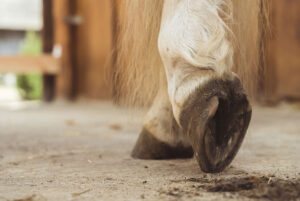Enteritis: Getting To The Guts
- Topics: Article, Ultrasound
Ninety practitioners and members of the equine health community gathered at the Piedra Foundation’s eighth annual Dan Evans Memorial Equine Conference in Del Mar, Calif., to discuss new solutions to the age-old problem of gastrointestinal disorders, specifically enteritis (inflammation of the small intestine). Doug Byars, DVM, Dipl. ACVIM, of Hagyard, Davidson, McGee veterinary hospital in Lexington, Ky., and Chrysann Collatos, VMD, of High Desert Veterinary Service in Reno, Nev., were the featured speakers. David Ramey, DVM, of Glendale, Calif., gave additional presentations on the complexities of complementary and alternative medicine.
Byars and Collatos covered diagnostic techniques and treatments for enteritis. Byars discussed causes and symptoms, and touched on promising ways to diagnose and determine whether the treatment should include surgery. He explained the occurrence of diarrhea in horses–especially in foals–and he outlined medications that help solve the problem in some cases. He reminded practitioners and lay owners that antibiotics can make the problem worse.
"Ultrasound of the abdomen," said Byars, "has dramatically improved our ability to tell whether to go to surgery or not. Look what a tremendous tool is at our fingertips," he said as he showed videotapes of diagnostic ultrasound. (Byars also gave practitioners a chance to hone their skills on spotting abnormalities such as masses on heart valves, carditis, and kidney stones, via ultrasound.) He also presented information relative to gastric ulcers and assessment of high-risk pregnancies relative to ultrasound examination.
Collatos discussed fluid therapy in a non-hospital situation. She said that practitioners should refer the patient to a hospital if the prognosis for the horse is not good, or if additional therapies are needed beyond what the practitioner has in his/her vehicle. Collatos stressed that if a practitioner can’t give the horse fluids fast enough, then the horse is better off traveling to an equine hospital set up for critical care
Create a free account with TheHorse.com to view this content.
TheHorse.com is home to thousands of free articles about horse health care. In order to access some of our exclusive free content, you must be signed into TheHorse.com.
Start your free account today!
Already have an account?
and continue reading.

Related Articles
Stay on top of the most recent Horse Health news with


















